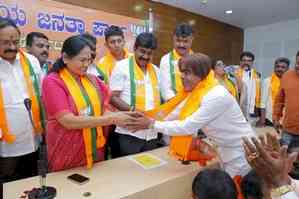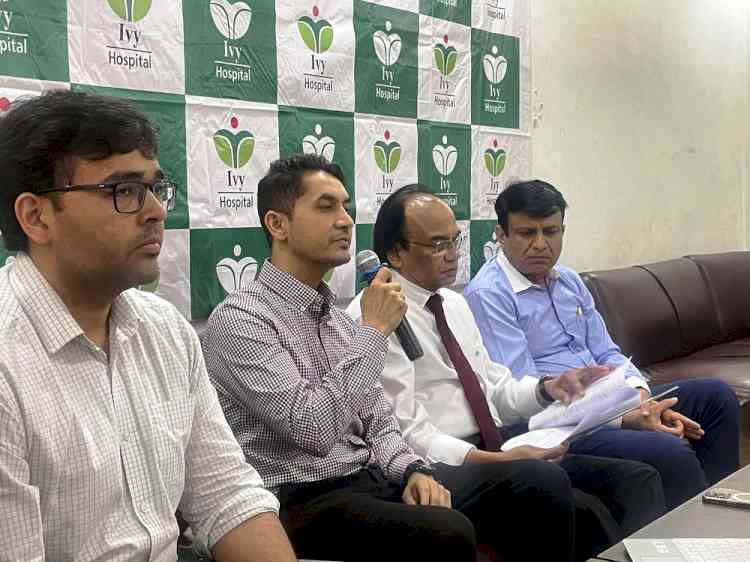FinTech & supportive regulations to build strong digital economy for India: IAMAI & PCI
Author(s): City Air NewsMumbai, September 22, 2017: The convergence of financial services, exponential technologies and an evolving regulatory framework will play a key role to build a strong digital economy for India said a report released...

Mumbai, September 22, 2017: The convergence of financial services, exponential technologies and an evolving regulatory framework will play a key role to build a strong digital economy for India said a report released by the Payments Council of India (PCI) and IAMAI’s on the occasion of the ‘Digital Money 2017’ conference.
The telecom revolution, internet banking and penetration of mobile services have been successful in on boarding a critical mass of Indians to either banking or connectivity. As revolutionary a change as this has been, it has not been effective or sufficient in reducing the cost of financial intermediation or achieving financial inclusion.
According to the report, India still ranks 130th in the world in terms of ease of doing business; thence removing regulatory red-tape will go a long way in unleashing the entrepreneurial energies of the people of India. Regulators need to agree that regulating this space beyond a certain point will damage the industry growth. Ease of doing business and simpler procedures to start a business help in creating a conducive business environment. The more barriers there are to starting a company, the fewer innovative companies can start and create a virtuous cycle of growth. Any government must strive to reduce such barriers, it said.
At the release, Dr. Ajay Kumar - Additional Secretary to Government of India Ministry of Electronics and IT, Govt. of India, “Transformation of Digital payment industry is waiting to happen; however, we should aim at 50%-60% of the payments pie to be digital if we want a sizable change. We have to make digital cheaper than cash. We have asked government ministries, startups etc. – to work towards making digital, cheaper & more attractive than cash.”
Emerging economies in Asia are aiming to further financial inclusion, while developed economies are more focused on efficiency, cost-savings and personalized services. FinTech depends on new delivery mechanisms bypassing the physical presence required by legacy systems. For FinTech start-ups to continue to grow, they need no engage with financial sector regulators and policy makers that minimises economic and financial risk without increasing regulatory cost; whereas to maximise the customer base, digital inclusion is a must.
The capital invested in FinTech globally has also been growing over the past few years. The amount of capital available in India is not comparable to global hubs but is increasing. In 2014, USD 5 billion was invested in Indian start-ups which grew to USD 7.5 billion in 2015. The pace of funding slowed in 2016 with a total of USD 3.9 billion raised in 2016/17.
Mr. Naveen Surya - Chairman, Payments Council of India said “We are now in the 10th year of organised and regulated digital payments industry. In last 10 years, the industry has grown 3x and going forward we need to grow by 5x to 6x in next 5-6 years. The overall payments industry will drive the growth in some of the green-tech energy space, such as driverless cars, mobile-less transactions using through Augmented Realty and Virtual Realty. At PCI we are playing the role of bridging the gap in between government, industry and the end consumer which will lead to achieving the objective of digital India at much faster pace”
Recent disruptive innovations in finance such as the crypto-currencies, digital trade advisory, peer-to-peer lending platforms and innovative payment systems have not only introduced the industry to new technologies but have also brought about an upgrade in the existing regulatory framework to meet the challenges of a new age financial sector without dampening innovations.
The report also recommends steps that will accelerate penetration and adoption of digital payments & credit ---
1. Bring about differentiated Merchant Discount Rate (MDR) for scaling of POS infrastructure, based on nature of transactions and purpose and looking at regulating interchange
2. Establish Interoperability and open access enabling firms to manage costs and increase efficiency through shared infrastructures
3. Universal payment login for ease of transaction across platforms and vendors.
4. Set up infrastructure to digitize government payments
5. Promote Aadaar based eKYC and eSIGN to move towards paperless authentication.
6. Enhance the limits for any account based relationship based on periodic KYC compliance
The report also makes an analytical comparison of the FinTech eco-systems of five countries USA, UK, Singapore, China and India. Whilst ranking them the report proxies the vitality of the eco-system by five factors: infrastructure, policy, capital, talent and demand. The comparison ranks India among the bottom vis-à-vis the other countries. India’s main advantage in FinTech lies in its huge pool of talent among its technology workers while higher value-added services are concentrated in the US and China.

 cityairnews
cityairnews 















